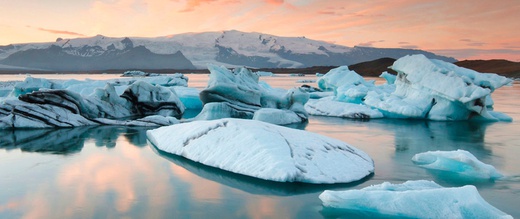The views expressed in our content reflect individual perspectives and do not represent the authoritative views of the Baha'i Faith.
It is crucial that we know this: we can meet our needs without destroying our life-support system. We have the scientific knowledge and the technical means to do that. We have the savvy and the resources to grow sufficient quantities of real, unaltered food. We know how to protect clean air and water. We can generate the energy we require through solar power, wind, tides, algae and fungi. We have birth control methods to slow the growth of, and eventually reduce, human population. We have the technical and social mechanisms to dismantle weapons, deflect wars and give everyone a voice in democratic self-governance. We can exercise our moral imagination to bring our lifestyles and consumption into harmony with the living systems of Earth. All we need is the collective will. – Joanna Macy, Coming Back to Life, pp. 3-4.
Today, thousands of babies were born who will be alive in the year 2100. So lately, I’ve thought a lot about a brilliant concept from the recent book Eleven, by the Baha’i author and science writer Paul Hanley. His book, an examination and analysis of what could happen when our planet’s population reaches 11 billion people by the end of this century, puts forth a unique and unprecedented conclusion: that the Earth’s future depends, not on the quantity of its inhabitants, but on their qualities. In other words, the number of people we have is nowhere near as important as the kind of people we have.

We know, scientifically, that if our soon-to-be-born 11 billion future people consume voraciously, waste the world’s resources and pollute the planet, then the Earth simply won’t have the ability to sustain them any longer. Those kinds of people will soon exhaust our global resources and quickly outstrip the available supplies of food, fresh water and energy—already strained with seven billion+ in global population today. Without a radical change in the way we now operate, our patterns of consumption, our materialistic sensibilities and our reliance on nationalistic economic systems will all lead us, Eleven convincingly demonstrates, over the environmental cliff of our extinction.
But if, Hanley postulates, those 11 billion people have a more universally spiritual outlook, if they conserve rather than waste, if they believe in and act as members of one human family, then the Earth can and will sustain them. We grow enough food and have sufficient resources now to sustain eleven billion people by the year 2100—but we waste so many of those resources on war, conflict and national defense, and in our disposable, throwaway, consumerist cultures. Eleven’s startling conclusion—that our collective future depends entirely on our collective moral character—has begun to change the thinking of many futurists and environmentalists.
These fundamental moral questions will define our ability to go on as a species. Only an ethical revolution, Hanley concludes, will allow humanity to carry forward an ever-advancing civilization. That ethical revolution involves some very deep spiritual principles, beginning with our innate unity:
It is obvious that all created things are connected one to another by a linkage complete and perfect, even, for example, as are the members of the human body. Note how all the members and component parts of the human body are connected one to another. In the same way, all the members of this endless universe are linked one to another. – Abdu’l-Baha, Selections from the Writings of Abdu’l-Baha, p. 48.
Recognizing that inherent human unity implies an entirely new, globally-inclusive way of relating to each other, without the barriers of citizenship, nationality, gender, race or class. It asks us to believe in a kind Creator; to accept the kinship of all creation; and to willingly dedicate ourselves to the common good:
That individual, however, who puts his faith in God and believes in the words of God — because he is promised and certain of a plentiful reward in the next life, and because worldly benefits as compared to the abiding joy and glory of future planes of existence are nothing to him — will for the sake of God abandon his own peace and profit and will freely consecrate his heart and soul to the common good. – Abdu’l-Baha, The Secret of Divine Civilization, p. 96.
We cannot, Eleven reasons, rely solely on science to come to our rescue, nor will politics or environmental reform do the job alone. Instead, we must build increasing levels of unity and connection between peoples, religions and nations:
…science, information, and knowledge alone – however vital – will be insufficient to address the concerns of global climate change. Religion, and the values and morals it inculcates, will also be necessary. The capacity to build a shared sense of vision and pursue it through acts of collective volition, to sacrifice for the well-being of the whole, to trust, and to give freely and generously to others will be critical to the work ahead. These will not arise through political expediency or mere environmental pragmatism. Rather, they will need to draw on the deepest sources of human inspiration and motivation. Religious communities and their leaders therefore have an indispensable role to play in the realm of climate change… Religion and science provide complementary insights into the shaping of individual and collective life. Both impact choices and priorities, and both will be required in the just and sustainable ordering of the affairs of humankind.
The work of addressing global climate change ultimately revolves around the aim of human lives well lived. This is a goal cherished by people, cultures and religions the world over. In it can therefore be found a powerful point of unity to support the work ahead. – Statement of the Baha’i International Community to the U.N. Climate Change Conference, July, 2014.

















Comments
Sign in or create an account
Continue with Facebookor